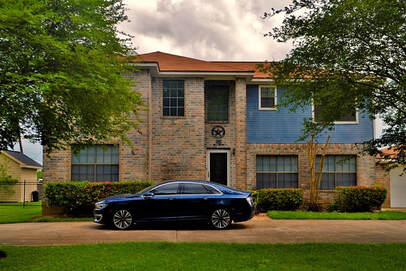|
One of the most significant decisions many individuals face in their lives is whether to rent or buy a house. Both options come with their own set of advantages and considerations, making it important to carefully evaluate the pros and cons before making a decision. This article aims to explore the key factors involved in renting and buying a house, helping you make an informed choice that aligns with your financial goals and lifestyle.
|
Renting a house offers several benefits that make it an appealing choice for many individuals. Firstly, renting provides flexibility. Leases typically run for a year and then month to month after that, allowing tenants to easily move to a new location if necessary. This can be advantageous for those who have a transient lifestyle or prefer to explore different neighborhoods before settling down.
Additionally, renting a house eliminates the burden of property maintenance and repair costs. Landlords are responsible for addressing any structural issues or necessary repairs, freeing up the tenant's time and financial resources. Moreover, renting often requires a smaller upfront financial commitment, as it typically involves a security deposit and the first month's rent, making it more accessible for individuals with limited savings or uncertain financial situations.
On the other hand, buying a house offers its own set of advantages that make it an attractive option for many people. One of the primary benefits of homeownership is the opportunity to build equity. With each mortgage payment, a portion goes towards the principal, allowing homeowners to accumulate value over time. This can be a valuable long-term investment, especially in areas with appreciating property values. Moreover, as the property appreciates in value over time, homeowners can benefit from the potential for a profitable resale in the future.
Furthermore, homeowners have the freedom to personalize and modify their living space according to their preferences. From renovations to landscaping, homeowners have the autonomy to create a home that reflects their style and meets their specific needs. This level of control over one's living environment is often seen as a significant advantage of buying a house.
However, it is essential to recognize the potential drawbacks of buying a house as well. Unlike renting, homeownership comes with significant upfront costs. Down payments, closing costs, and ongoing expenses such as property taxes, insurance, and maintenance can quickly add up. It is crucial to carefully assess your financial situation and ensure that you have a stable income and savings to cover these expenses.
Another consideration is the commitment and responsibility that comes with homeownership. Buying a house requires a long-term commitment, as mortgages often span 15 to 30 years. This level of commitment may not be suitable for individuals who prefer flexibility or anticipate frequent relocations due to work or personal reasons.
Ultimately, the decision to rent or buy a house depends on various factors, including financial stability, personal preferences, and long-term goals. If you value flexibility, limited financial responsibility, and the ability to relocate easily, renting may be the better option for you. However, if you prioritize long-term investment potential, autonomy in customizing your living space, and stability, buying a house may be the more suitable choice.
It is advisable to consult with a financial planner and carefully evaluate your circumstances and future plans before making a decision. By considering the advantages and disadvantages of renting and buying a house, you can make an informed choice that aligns with your current situation and long-term goals.
Additionally, renting a house eliminates the burden of property maintenance and repair costs. Landlords are responsible for addressing any structural issues or necessary repairs, freeing up the tenant's time and financial resources. Moreover, renting often requires a smaller upfront financial commitment, as it typically involves a security deposit and the first month's rent, making it more accessible for individuals with limited savings or uncertain financial situations.
On the other hand, buying a house offers its own set of advantages that make it an attractive option for many people. One of the primary benefits of homeownership is the opportunity to build equity. With each mortgage payment, a portion goes towards the principal, allowing homeowners to accumulate value over time. This can be a valuable long-term investment, especially in areas with appreciating property values. Moreover, as the property appreciates in value over time, homeowners can benefit from the potential for a profitable resale in the future.
Furthermore, homeowners have the freedom to personalize and modify their living space according to their preferences. From renovations to landscaping, homeowners have the autonomy to create a home that reflects their style and meets their specific needs. This level of control over one's living environment is often seen as a significant advantage of buying a house.
However, it is essential to recognize the potential drawbacks of buying a house as well. Unlike renting, homeownership comes with significant upfront costs. Down payments, closing costs, and ongoing expenses such as property taxes, insurance, and maintenance can quickly add up. It is crucial to carefully assess your financial situation and ensure that you have a stable income and savings to cover these expenses.
Another consideration is the commitment and responsibility that comes with homeownership. Buying a house requires a long-term commitment, as mortgages often span 15 to 30 years. This level of commitment may not be suitable for individuals who prefer flexibility or anticipate frequent relocations due to work or personal reasons.
Ultimately, the decision to rent or buy a house depends on various factors, including financial stability, personal preferences, and long-term goals. If you value flexibility, limited financial responsibility, and the ability to relocate easily, renting may be the better option for you. However, if you prioritize long-term investment potential, autonomy in customizing your living space, and stability, buying a house may be the more suitable choice.
It is advisable to consult with a financial planner and carefully evaluate your circumstances and future plans before making a decision. By considering the advantages and disadvantages of renting and buying a house, you can make an informed choice that aligns with your current situation and long-term goals.



